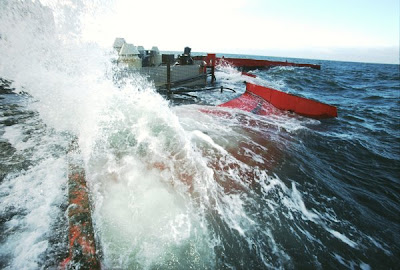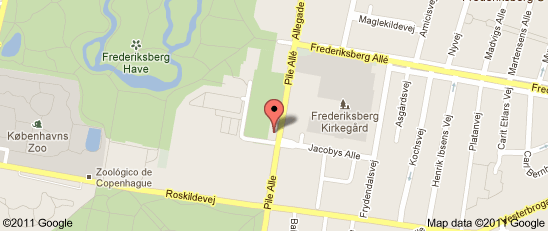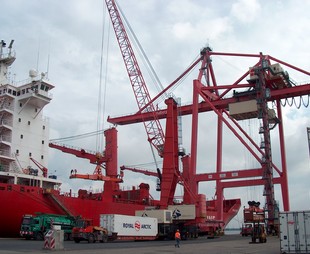 Declaration on the reform of the Council of the Baltic Sea States
Declaration on the reform of the Council of the Baltic Sea States
CBSS Ministers' Deputies Meeting
Riga, 3 June 2008 The Foreign Minister of Latvia and the Representatives of the Ministers for Foreign Affairs of Denmark, Estonia, Finland, Germany, Iceland, Lithuania, Norway, Poland, the Russian Federation, Sweden and of the European Commission constituting the Council of the Baltic Sea States (CBSS), met upon the invitation of the Foreign Minister of Latvia in Riga on 3 June 2008 in preparation of the 7th Baltic Sea States Summit in Riga on 4 June 2008.
The Council- recalling the Declaration of the Conference of Foreign Ministers of the Baltic Sea States in Copenhagen on 5-6 March 1992,
- also recalling the recommendations of the Heads of Government of the 3rd Baltic Sea States Summit in Kolding on 12-13 April 2000,
- also recalling the Political Declaration and the Policy Framework Document of the Northern Dimension adopted by the European Union, Iceland, Norway and the Russian Federation on 24 November 2006,
- also recalling the Declaration of the 14th Ministerial Session of the CBSS in Malmö on 13 June 2007 on a Renewed Baltic Sea States Cooperation,
- also recalling that this Ministerial Session confirmed its desire to increase cooperation in the Baltic Sea Region considered relevant to enhancing its competitiveness,
- also recalling that this Ministerial Session decided to reform the CBSS, on the basis of agreed priorities, with the aim of revitalising the CBSS to ensure that the organisation is better equipped to focus on priority actions, including a capacity to develop regionally important and strategic projects and to explore the financing of projects,
- reaffirming its shared responsibility for the prosperity of the Baltic Sea Region, its competitiveness and its sustainable development including gender equality, the public health and social well-being of its population, and its commitment to create favourable conditions for the development of the region and for further strengthening of mutually beneficial multilateral cooperation, including cross-sectoral, cross-border and sub-regional cooperation, as well as promoting democracy, human rights and the rule of law,
Decided as follows:
1. in the context of the CBSS, the long-term priorities for Baltic Sea Region cooperation, without prejudging the right of initiative of any member, shall be:
environment, which may include climate change,
economic development, which may include innovation and competitiveness and a favourable business environment, fostering entrepreneurship, cluster development, maritime economy, transport & logistics, research and development, customs cooperation and well-functioning labour markets,
energy, which may include energy security, energy efficiency and saving, renewable energy and the impact of energy on the environment,
education & culture, which may include the EuroFaculty concept, student and academic mobility, upgrade of science and research network capacity, cultural heritage, contemporary culture and the promotion of regional identity,
civil security & the human dimension, which may include the fight against trafficking in human beings, the protection of children's rights, nuclear and radiation safety, civil protection, as well as consumer protection, youth affairs, people-to-people contacts and the promotion of tolerance,
2. that full account shall be taken of the work conducted in the Northern Dimension Policy Framework and of the Strategy for the Baltic Sea Region under preparation in the European Union, as the implementation of the aforementioned priorities will require a concerted effort by all relevant actors in the region,
3. that the Council shall continue to take overall political guidance from the Baltic Sea States Summits,
4. that CBSS Ministerial Sessions shall continue to be held on an biennial basis,
5. that the aforementioned priorities can be implemented by expert groups, including governmental and non-governmental experts, as appropriate, with clear and time-limited mandates and tasks. The existing three permanent CBSS Working Groups shall be discontinued or transformed into expert groups by the 15th Ministerial Session at the latest. Decisions on establishing expert groups shall be taken by the Committee of Senior Officials. Overlapping mandates with bodies outside the CBSS are to be avoided,
6. to restructure the Secretariat in order to better facilitate project identification, fund raising and project management. Staff members will be assigned to priority-related projects and initiatives, while continuing to provide advice and assistance to the Council, the Presidency and the Committee of Senior Officials,
7. to periodically review and evaluate the adopted long-term priorities and the methods of their implementation,
The Council also decided that:
8. the two categories of "special participants" and "strategic partners" in the CBSS be merged into a single category of strategic partners, with a view to enhancing mutual cooperation and coordination of activities,
9. consultations between the Committee of Senior Officials and the CBSS Observer States shall, as a rule, be held annually in Stockholm; the Observer States´ appointed contact persons are to play a key role in this,
10. the CBSS website, coordinated by the Secretariat, shall provide the basis for a one-stop-shop giving an overview of the activities and projects implemented by the CBSS and its cooperation partners,
11. it shall continue to coordinate its activities and seek synergies with the Nordic Council of Ministers, the Barents Euro-Arctic Council, the Arctic Council and the Northern Dimension Partnerships,
12. it shall seek complimentarity and synergy with other regional and subregional actors,
13. the CBSS will strive for increased cooperation with the relevant European Union programmes including the European Neighbourhood and Partnership Instrument and transnational programs. It notes that the membership of the European Commission in the CBSS ensures regular information exchange with the Commission regarding the emerging EU Strategy for the Baltic Sea Region.
Finally, the Council decided:
14. to amend the Terms of Reference of the Council of the Baltic Sea States and its Secretariat, as well as the Principles and Guidelines for Third Party Participation in the CBSS and other pertinent documents in accordance with this declaration,
15. to present this declaration to the 7th Baltic Sea States Summit in Riga on 4 June 2008.
Future priorities of Baltic Sea Region: environment, economy, energy, education, culture, and civil security [04 Jun 2008] print version
email this link
On 4 June 2008, the Baltic Sea States Heads of Government Summit working session adopted a declaration on the reform of the Council of the Baltic Sea States (CBSS), in which the long-term priorities of the organisation are defined, and a document of the chairman's conclusions that reflects CBSS accomplishments and activities under the Latvian presidency. Future prospects in the priority areas are also defined.
In the coming years, the priorities of the CBSS will be as follows:environment (including climate change),
economic development (including innovation, competitiveness, a stimulating business environment, business promotion, sea economy, transport, logistics etc)
energy (including energy security, efficiency, renewable resources, energy impact on environment),
education and culture (including the concept of the EuroFaculty, mobility of students and academics, a raising of the science and study network capacity, and the creation of a regional identity),
civil security and the humanitarian dimension (including fight against human trafficking, protection of child rights, nuclear security, youth affairs, the promotion of tolerance).
The priorities will be implemented by expert groups, made up of representatives of state institutions and NGOs, with a definite mandate, tasks, and timelines. The present working groups will be dissolved or reformed into expert groups. Proposals and decisions on the establishment of expert groups will be accepted by the CBSS Committee of Senior Officials.
The declaration also stipulates the restructuring of the organisation's Permanent International Secretariat with the aim of promoting the attraction of funding, project elaboration and implementation. The staff of the secretariat will be involved in the work with particular projects and initiatives, which are related to the realisation of the CBSS priorities.
The priorities defined and the methods of their implementation will be reviewed and re-examined on a regular basis.
The declaration says that further on, the concepts of 'special participants' and 'strategic partners' will be joined in a single term: 'strategic partners'. This will encourage mutual co-operation and facilitate the coordination or various activities, especially in the priority directions.
The CBSS will continue to harmonise its undertakings with the Nordic Council of Ministers, the Barents Euro-Arctic Council, the Artic Council, and the Northern Dimension partnerships, as well as to deepen its co-operation with EU programmes, including, the European Neighbourhood Policy, and other international programmes. The participation by the European Commission in the CBSS will ensure a regular exchange of information with regard to the EU Strategy for the Baltic Sea Region.
During the next –
the Danish – presidency, these decisions will need to be reinforced in the statutes of the CBSS and the CBSS Secretariat, as well as in other rules and regulations.
In addition, the HELCOM* Baltic Sea Action Plan has been commended in the document of the CBSS chairman's conclusions. The objective of the plan is to renew the ecology of the Baltic Sea by 2021, and its implementation is one of the political priorities of the region. Such significant issues as marine security, marine policy, and a sustainable management of the Baltic Sea are also incorporated in the document. Likewise, co-operation as part of the Baltic 21** is commended. It is expected that the EU Marine Strategy Directive will be implemented effectively and that it will make a positive impact on environmental protection in the Baltic Sea. In the conclusions, the Heads of Government note with satisfaction the successful activities of the Northern Dimension Environmental Partnership implementing various projects and attracting funding from different sources. The Heads of Government also encourage the CBSS and its strategic partners to pay special attention to climate change in the region and to mitigate its adverse effects.
The officials recognise in the conclusions that research, development, and innovation need to be raised to a priority level, thus promoting the competitiveness and growth of the region. Special attention should be accorded to the development of small and medium-sized enterprises, the field of maritime economy, transport and logistics, science parks and industrial clusters, as well as to the advance of business environment and labour market.
The Heads of Government underline that stable and secure energy supplies are important for the economic growth and welfare in the region. Increased effort for the development of renewable energy resources and energy efficiency is needed.
The meeting of ministers for energy due to take place in autumn will to set appropriate benchmarks for the energy co-operation in the next three-year period 2009 to 2011. In this respect, sustaining integration of the energy markets and infrastructure, as well as ensuring a competitive, stable and secure energy supply in the region are of a particular importance. The Baltic Sea Region Energy Co-operation (BASREC) is encouraged to put an increasing focus on the achievement of the required objectives and results.
In the sector of education, which is an investment for the region's competitiveness, attention needs to be accorded the promotion of co-operation between higher education institutions, enhancement of the curricula, facilitation of the mobility of students and the academic staff, improvement of the capacity of science networks, and the development of adult education and life-long education.
The Heads of Government also stressed the significance of co-operation in culture that encourages the preservation of cultural heritage, the strengthening of regional identity, the growth of creative industries, cultural tourism, protection of underwater cultural heritage, fight against the illegal export of cultural artifacts and 'black archaeology'. The officials commended the co-operation as part of ARS BALTICA, the Northern Dimension Framework with regard to cultural collaboration, the initiative of the Baltic Sea Festival, and, finally, the cultural and public diplomacy project of the Latvian presidency - Balticness.
The officials positively evaluated the forms of co-operation aimed at fighting organised crime, human trafficking, protecting child rights, as well as commended the joint efforts to ensure nuclear and radiation safety and the fight against illegal migration. They reiterated their commitment to the Northern Dimension Partnership in Public Health and Social Well-being and took note of the study on corruption prevention in the public administration of the CBSS member states.
The Heads of Government also accentuate the joint efforts in the area of youth policy, promoting voluntary work, youth businesses, and research in the topics of youth and intercultural education.
The working session concludes the Latvian presidency of the CBSS, which will now be taken over by Denmark.
The next CBSS Heads of Government Summit will take place in 2010 in Lithuania.
Recommende reading by Hans Audius






